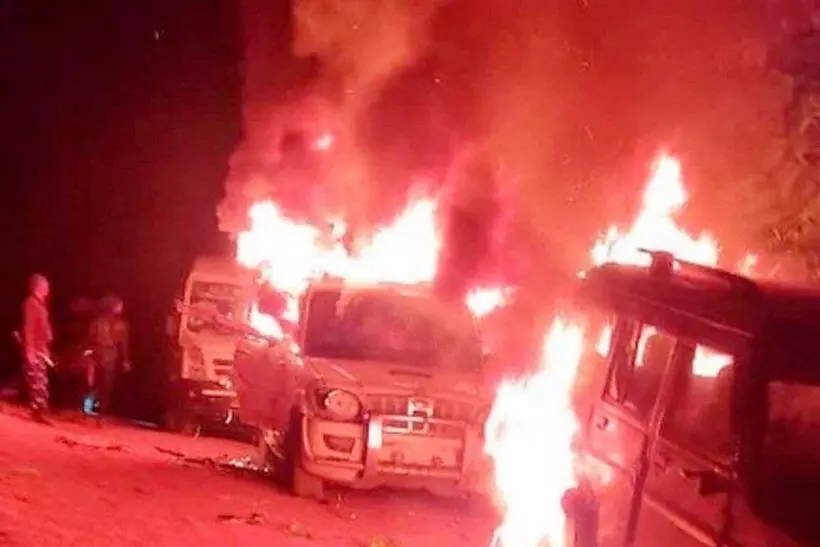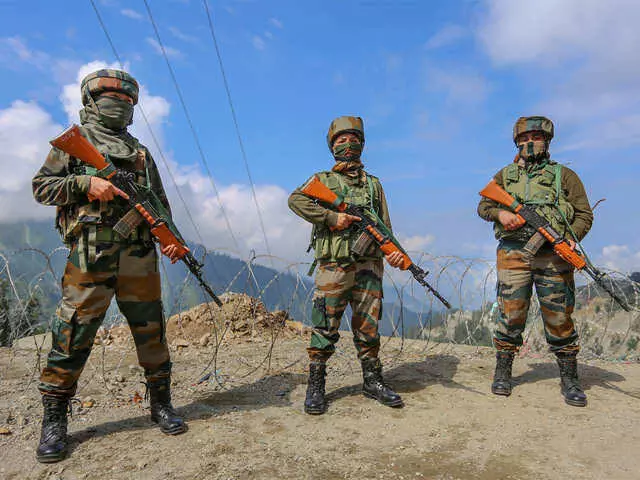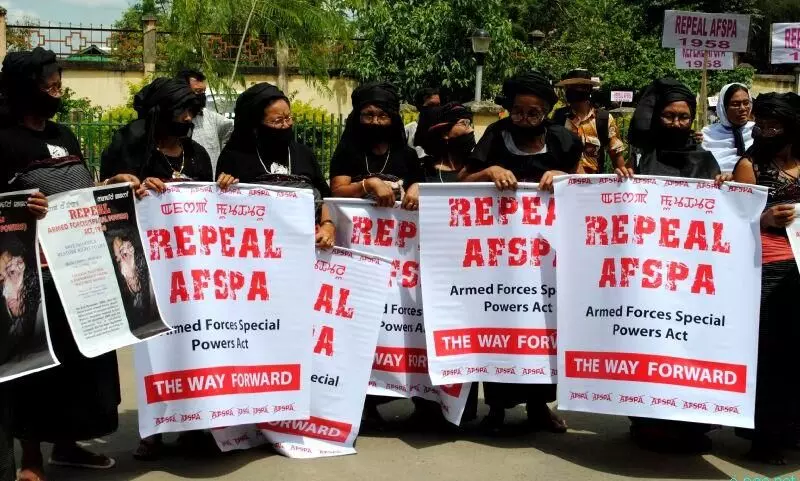
AFSPA terrorism should end
text_fieldsProtests following the military firing in Nagaland
Thirteen civilians were killed in an indiscriminate firing by the Indian Army 21 paramilitary forces in the village of Oting in the Mon district of the northeastern state of Nagaland. In the evening, troops opened fire on miners returning home from work in a remote village on the Indo - Myanmar border. Not only did they shoot the workers who were travelling in a pickup van, but when the villagers came hearing the gunfire, they tried to hide the bodies in a tarpaulin sheet and secret them away in another vehicle. According to preliminary police report, the Army made the choice to deliberately fire on civilians.
The report alleges that before the military operation in the conflict-affected areas, the army did not even take the primary responsibility of informing the police of their location or particulars of the operation. The army has announced that it will conduct an internal investigation into the incident. The state government has also appointed a Special Investigation Team. But even as these attempts were being made, Union Home Minister Amit Shah made a statement in Parliament on Monday where he sought to justify military terrorism. The Home Minister only briefed the house on behalf of the Central Government to explain the rejection of the demand for a debate on the incident in both the Houses of Parliament. The shooting was the result of a report about a militant presence in the area following which a vehicle carrying labourers passed without stopping against their signal to stop it.
However, military sources explained that the barrage was fired after observers noticed something barrel-shaped in the hands of the workers. Either way, Mon is the latest example of how the lives of the people are being treated lightly in the 'military-ruled northeastern states' and in Jammu and Kashmir. One week ago, clashes erupted in Jammu and Kashmir over the killing of two civilians who had been doing business in the city centre for years; the two were murdered under the guise of counter-terrorism operations and finally the government surrendered to the demand for a probe. It is common for a person to be shot, buried without the family being informed, and the killing justified in the name of fighting terrorism. The same method was tried in Nagaland yesterday. But things went wrong as the army was caught red-handed by vigilant citizens.
Political leadership, aware of the complex political process by which the Jammu and Kashmir and the north-eastern states became part of our country, is cautious as it understands the strategic importance of the region. In Nagaland, the central government has somehow managed to win over armed insurgents fighting with Nagaland as their own nationality, through agreements made with their interests in mind. However, the still unclear rebellious atmosphere proves that the Nagas have not been fully tamed. In 2015, when the Centre hailed the new agreement drafted by the Narendra Modi government after 80 rounds of negotiations and kept it a top secret, the National Socialist Council of Nagaland (IM) put pressure on the government by making it public. Meanwhile, the move by the BJP government to divide Jammu and Kashmir in its quest to implement its own agenda has sowed seeds of unrest in the north-eastern states. Today, in the region with its conflicting diversity of language, ethnic, national and tribal identities, governments at the Centre have attempted over-militarization in the border regions instead of trying to solve political issues through diplomacy. The Army has been emboldened with the infamous Armed Forces Special Powers Act (AFSPA) for a free hand. This notorious law, which does not even take into account human rights, provides an opportunity for the military to rule at its will. Political observers have often pointed out that the law has been abused to accelerate border terrorism and to target civilians. Human rights agencies have also complained that this could lead to murder or torture and breaking and entering homes citing suspicions of security threats.
AFSPA also empowers the military to fire on civilians indiscriminately as was demonstrated in Mon. The army should at least have the nominal etiquette of reporting the location of an operation to the police before entering an area. But even if it is violated, the final verdict will be at the discretion of the military. That is why Nagaland and Meghalaya Chief Ministers Neiphiu Rio and Conrad Sangma have demanded that the withdrawal of AFSPA be the solution to such atrocities. They assert that they are obliged to do justice to their own people, assuming that they are in alliance with the BJP. The Centre should urgently consider withdrawing this barbaric law which is ruining the image of the military. The easiest way resorted to by the government to deal with conflict, as it does now, is to cut off the Internet in the wake of any controversy and quell public anger. But when will this government realise that it cannot repress the people who belong to such volatile regions, by bringing them under military boots and alienating them, which will only turn already bad situations even worse? The sooner 'AFSPA', which is crossing all limits, is withdrawn from the border states, the faster the peace process will be.

























